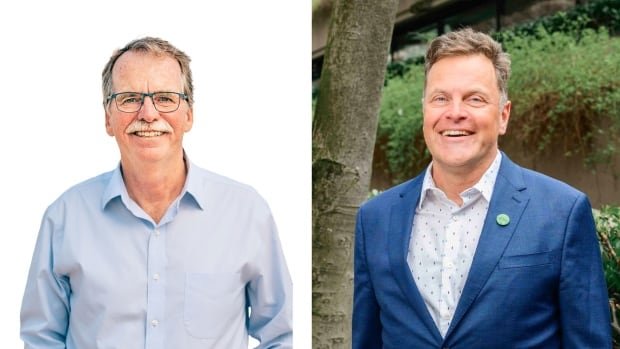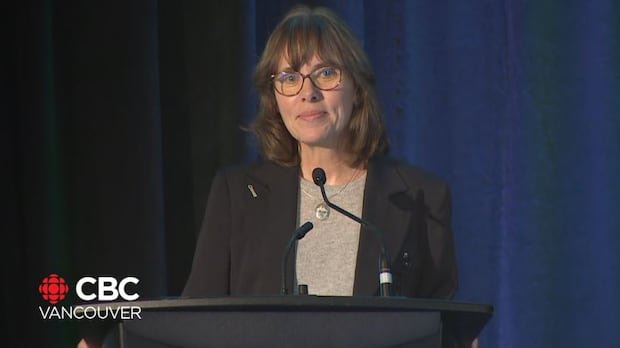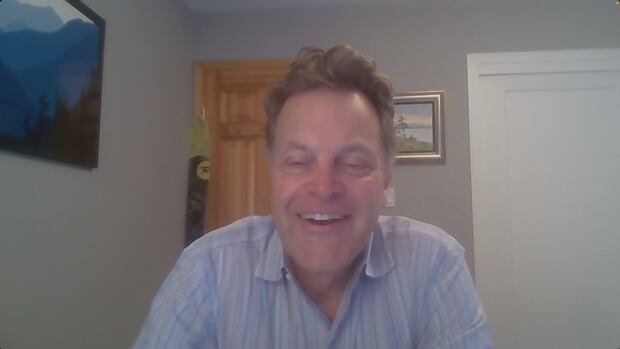Two B.C. Green MLAs could be the difference as the provincial election sits on a knife’s edge, with the full results not to be known for several days.
As of Tuesday, the NDP were leading or elected in 46 seats, the Conservatives in 45 seats and the B.C. Greens were elected in two seats. In the B.C. Legislature, 47 seats are required to form a majority government.
Based on preliminary results, the winners of 11 ridings remain too close to call — with the NDP leading in six of those, and the Conservatives in five. Full election results are not expected at least until Oct. 26, when Elections B.C. says it will begin counting about 49,000 absentee and mail-in ballots.
The elections agency says manual recounts will also be held on Oct. 26-28 in two ridings where NDP candidates led B.C. Conservatives by fewer than 100 votes after the initial count ended on Sunday.
That leaves the Green Party in the role of potential kingmaker.
If the results hold, some political observers have said the Greens could form a supply-and-confidence agreement with the NDP, similar to the arrangement made after the 2017 provincial election, in order for the New Democrats to form a government.
However, that will depend on the two first-time Green MLAs in the legislature — who have both said they aim to provide an alternative to the B.C. NDP and Conservatives.
Complicating the matter further is the fact that party leader Sonia Furstenau lost her seat in the election.
B.C. Green Leader Sonia Furstenau addresses supporters after failing to win the Victoria-Beacon Hill riding in the provincial election.
“As [Furstenau] mentioned in her concession speech, and certainly we’ve talked since … we’re going to carry on and work together to tackle the issues and, you know, advance the platform of the Green Party,” said newly elected Saanich North and the Islands MLA Rob Botterell.
Botterell was elected in former Green MLA Adam Olsen’s seat, and the retired lawyer said he has the full support of Furstenau and Olsen in his role as a first-time MLA.

Rob Botterell is MLA-elect for Saanich North and the Islands. He spoke to Gregor Craigie, the host of CBC’s On The Island.
In response to questions about whether he had been approached for a confidence-and-supply deal, Botterell said his party was still waiting for the full election picture to develop first.
“We’re really looking forward to charting the path forward once we know the final results,” he said. “My experience is it’s best to take things one step at a time.”
Historic win on the Mainland
Botterell will be joined by fellow first-time MLA Jeremy Valeriote, who won the West Vancouver-Sea to Sky riding — an area that has historically been represented by centre-right parties.
Valeriote was projected to win the seat in 2020 before a recount handed it to Jordan Sturdy of the B.C. Liberal Party.
In winning on Saturday, Valeriote made history as the first B.C. Green MLA to be elected outside of Vancouver Island and the Gulf Islands.
After years of being represented by centre-right parties, Jeremy Valeriote won the riding of West Vancouver-Sea to Sky for the Greens. He spoke to the CBC’s Stephen Quinn about what role the Greens could play in the new B.C. Legislature.
“It’s extremely sad and [disappointing] to not see Sonia elected in Victoria-Beacon Hill,” Valeriote told Stephen Quinn, host of CBC’s The Early Edition, on Monday.
“I think it says a lot about the binary two-party system that we’re still struggling under, that we need more more voices at that table.”
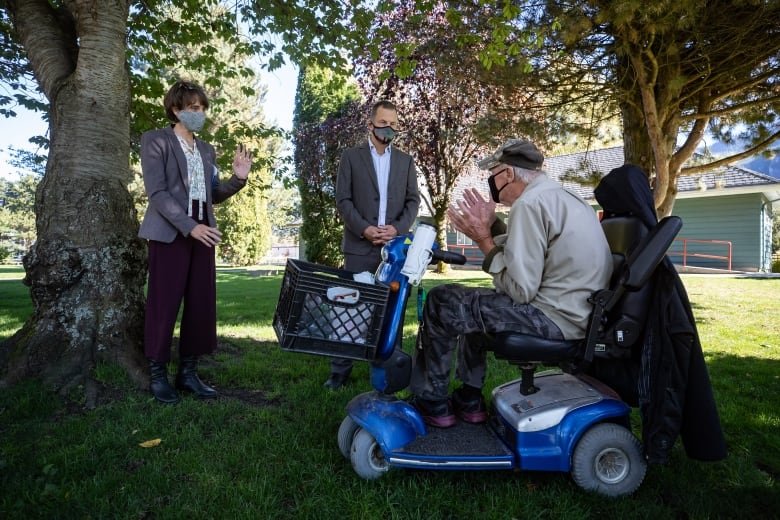
Botterell said he wants to work to create an environment of collaboration and build consensus in the legislature — something echoed by Valeriote, who said the Greens’ role could be to act as the conscience of the chamber.
“Our role is not to become like the others and, you know, desperately grasp for power. It’s to make a difference … in a way that contributes,” he said.
Ex-leader says scenario different
Former B.C. Green leader Andrew Weaver knows what it’s like to form a minority government with the B.C. NDP, but says such a deal to create the province’s next administration is less likely this time than seven years ago.
Weaver struck a power-sharing agreement that resulted in John Horgan’s NDP minority government in 2017, but said in an interview Monday there is now more animosity between the two parties.
Weaver, who is no longer a member of the Greens, endorsed a Conservative candidate in his home riding.
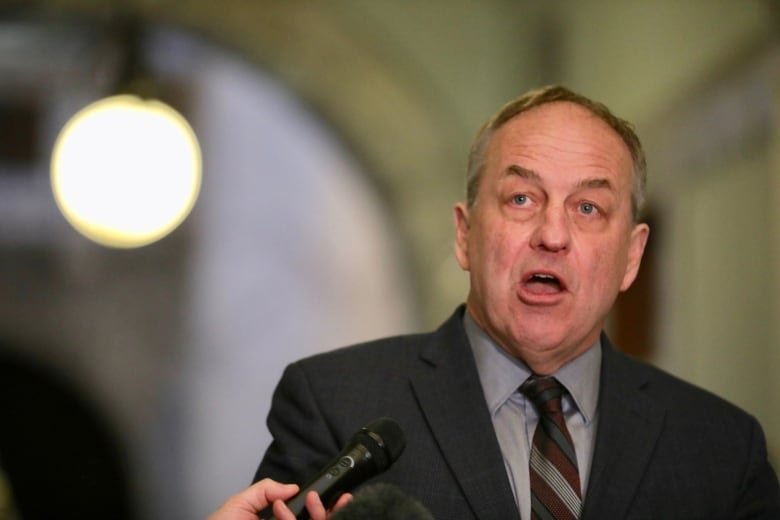
“I think Mr. Eby would be able to have fresh discussions with fresh new faces around the table, [after] four years of political sniping … between Sonia and the NDP in the B.C. Legislature,” he said.
He said Furstenau’s loss put the two elected Greens in an awkward position because parties “need the leader in the legislature.”
Furstenau could resign as leader or one of the elected Greens could step down and let her run in a byelection in their riding, he said.
“They need to resolve that issue sooner rather than later,” Weaver said.
Sanjay Jeram, chair of undergraduate studies in political science at Simon Fraser University, said he doesn’t think it’ll be an “easygoing relationship between [the NDP and Greens] this time around.”
“I don’t know if Eby and Furstenau have the same relationship — or the potential to have the same relationship — as Horgan and Weaver did,” he said. “I think their demands will be a little more strict and it’ll be a little more of a cold alliance than it was in 2017 if they do form an alliance.”


